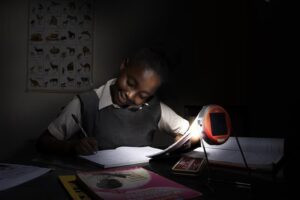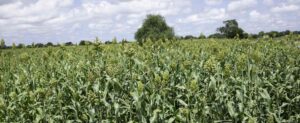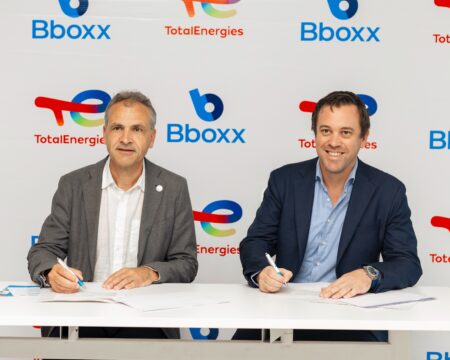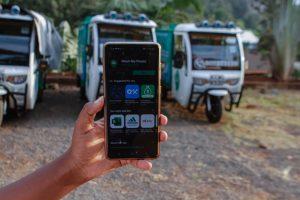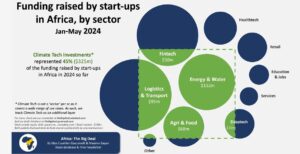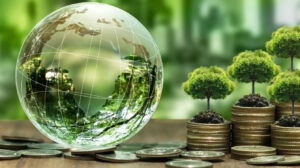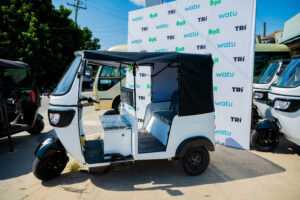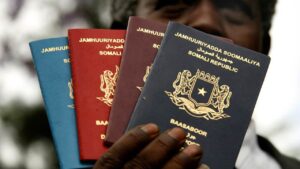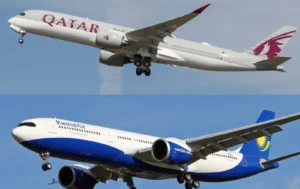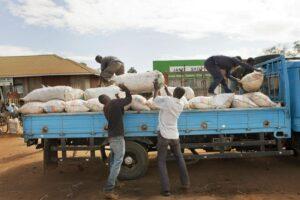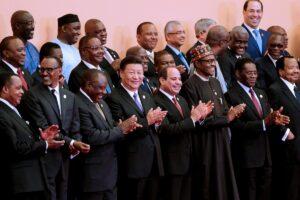- Africa’s new dawn: the rising role of digital and AI in agriculture
- Can Dangote Refinery Transform Africa Energy Ambition
- Gallup Survey: 80 per cent of Kenyan Workers Are Disengaged and Seek New Opportunities
- Madagascar Man Freed from 5KG Tumor After 15-Year Struggle
- How women in Africa are perceived and treated
- Sugar consumption in Kenya to Increase to 1.23 Million Tonnes
- Can Somalia and Turkey Oil deal Bring Change in Somaliland
- Remittances to Kenya dropped to $371.6 million in June, marking a six month low
Sustainability
- AI in agriculture is being used to drive the sourcing of real-time data, perform predictive analysis, and run algorithms that optimize farming practices.
- In South Africa, Kenya, and Zimbabwe, ITIKI, an innovative project is tapping indigenous environmental knowledge among African communities, integrating it with AI to predict droughts with better precision.
- GSMA: AI in agriculture is poised to enable the deployment of innovative digital financial solutions such as credit and insurance products for millions of farmers.
In Africa, a continent of over 1.2 billion people, agriculture remains the primary economic activity, accounting for 17 percent of the GDP on average while offering jobs to nearly 60 percent of the population.
The bulk of the food produced in Africa or about 80 percent is, however, attributable to the effort of smallholder farms, where women provide much of the workforce. Unfortunately, these smallholder farmers continue to face multiple challenges, a scenario that …
- d.light and impact investor African Frontier Capital have joined forces on new financing to support consumer loans for solar and high-efficiency appliances in East Africa.
- The US-headquartered firm will use the new financing to enhance its PayGo consumer finance offering.
- d.light seeks to make solar-powered products available to more low-income households and communities.
Off-grid solar provider d.light, has secured a new securitization funding worth $176 million from social impact-focused asset management company African Frontier Capital (AFC) to enhance access to green energy-powered applicances in Kenya, Tanzania, and Uganda markets.
The California-based company said it will use the new financing to enhance its PayGo consumer finance offering as the firm seeks to make solar-powered products available to more low-income households and communities in the target markets.
“This new facility is another landmark step in d.light’s mission to provide people with affordable energy that is also clean, safe and sustainable. It …
- The programme will be rolled out in Bahr el Ghazal in the north, Eastern Equatoria, Central Equatoria and Jonglei states, creating 179,200 new jobs.
- UN’s FAO and South Sudan’s Ministry of Agriculture and Food Security have been picked as the implementers.
- The initiative will boost productivity by an additional 350,000 tonnes of rice and sorghum and 2,450 tonnes of fish.
The African Development Bank (AfDB) has approved a $46.2 million grant for South Sudan’s agriculture sector. This grant is set to finance South Sudan’s Climate Resilient Agri-Food System Transformation Programme, which is set to run between September 2024 and December 2030.
Over these six years, the project aims to deploy climate-smart technologies and production systems on a large scale while also strengthening the priority value chains of businesses led by women and young people.
The project brief shows that the project seeks to promote digital agricultural and climate advisory solutions …
- In 2024, startup funding in Africa has evolved with Climate tech, which covers various use cases, surging to account for 45% of funding, an all-time high.
- In the period under review, climate tech received $325 million.
- Despite the overall dip in total investments, climate tech’s share of funding has been steadily rising, reflecting its expanding importance in Africa’s startup scene.
In the face of increasing economic woes and adverse weather conditions, climate tech startups in Africa are defying the odds, instead, experiencing unprecedented levels of investment. This year, climate tech is emerging as a primary focus for investors, reflecting the urgent need for innovative solutions to address the continent’s climate-related issues.
The latest numbers show that climate tech startups garnered substantial attention in 2024, with funding reaching an all-time high of $325 million, which is 45 percent of the total startup financing announced in Africa this year.
“But what’s particularly …
- This climate finance deficit presents a pressing challenge to Africa, as it directly affects the continent’s capacity to address critical climate-related issues.
- African governments must adopt innovative financing opportunities that blend public and private partnerships.
- Leaders from Africa, the Republic of Korea, and the Global Green Growth Institute (GGGI) have jointly called for more collaboration and cooperation to bridge the climate finance gap
Climate finance
The climate finance gap has been a persistent topic of climate change discussions for the longest time. Despite a financing need exceeding $3 trillion by 2030, the continent receives merely about a 10th of its climate finance need, representing less than 5.5 per cent of the total global climate finance. This gap is felt especially keenly in countries like Uganda, which, despite being one of the many African countries committed to Nationally Determined Contributions (NDCs), experiences a distinct lack of climate funding.
According to the …
- Bolt, TRÍ, and Watu have launched a pilot program in Tanzania to introduce electric Bajajis, aiming to enhance sustainable urban transportation and improve the economic well-being of drivers.
- This initiative reduces operational costs significantly, boosts driver earnings, and aligns with Tanzania’s green mobility efforts.
- The program includes comprehensive support and training for drivers, with plans for future expansion to foster broader adoption of eco-friendly vehicles.
In a move that is set to revolutionize Tanzania’s urban transportation, Bolt, TRÍ, and Watu Africa have joined forces to launch a pilot program featuring electric Bajajis. This collaboration not only promises to enhance sustainable mobility but also aims to improve the economic well-being of Tanzanian drivers.
As a leading ride-hailing platform, Bolt integrates electric Bajajis into its services, allowing drivers to seamlessly participate in this innovative program. This integration enhances operational efficiency and provides drivers with access to cost-effective vehicles, significantly increasing …
- World Environment Day 2024 marked under the theme “Our Land. Our Future. We are #GenerationRestoration,” highlights global efforts to restore degraded lands, combat desertification, and build drought resilience.
- Hosted by Saudi Arabia for the second time in over 50 years, the day amplified the Kingdom’s environmental goals, including the Saudi Green Initiative and Middle East Green Initiative, which seeks to plant 50 billion trees and achieve land degradation neutrality by 2030.
On the biggest calendar moment for environmental action, the official celebrations hosted by the Kingdom of Saudi Arabia marked the second time in more than 50 years that World Environment Day has been hosted in the West Asia region. Faced with
- VFS Global Visa Processes saw a global substantial increase of 35 per cent
- The tourism sector saw a rebound in 2023, with global travel recovering from the COVID-19 pandemic.
- VFS Global extended its strategic investments through signature programs in Indonesia, Thailand, and South Africa
VFS Global, the world’s largest outsourcing and technology services specialist for governments and diplomatic missions, achieved new sustainability targets according to its fifth edition of the Integrated Sustainability Report 2023.
Among key achievements in 2023 include a 35 per cent increase in the number of visa applications processed worldwide and other markets globally, as well as an expanded service portfolio by securing seven global contracts, including the UK Visa and Immigration, the Department of Home Affairs in Australia.
In 2023, global travel bounced back from the COVID-19 pandemic, with the Middle East, EU region, and Africa emerging as the top performers, according to the UNWTO’s tourism …
- The World Bank has approved a $1.2 billion loan to support policy and institutional reforms to address structural constraints in Kenya’s public finances.
- On climate, the financing will support Kenya’s investments in green public transport systems.
- Kenya’s $1.2 billion DPO facility is funded through a combination of financial instruments
Kenya has received a loan of $1.2 billion ( about KES156 billion) from the World Bank to help the country address short-term fiscal pressures and accelerate green initiatives. The new $1.2 billion Kenya Fiscal Sustainability and Resilient Growth Development Policy Operation (DPO), is the first in a series of three.
According to the multilateral lender, it has been prepared under an improved macroeconomic environment following government action to address the challenges that had overshadowed the economy including tight liquidity pressures, depressed investor confidence and limited capital inflows that had resulted in a rapidly depreciating shilling.
A Development Policy Operation (DPO) is …






